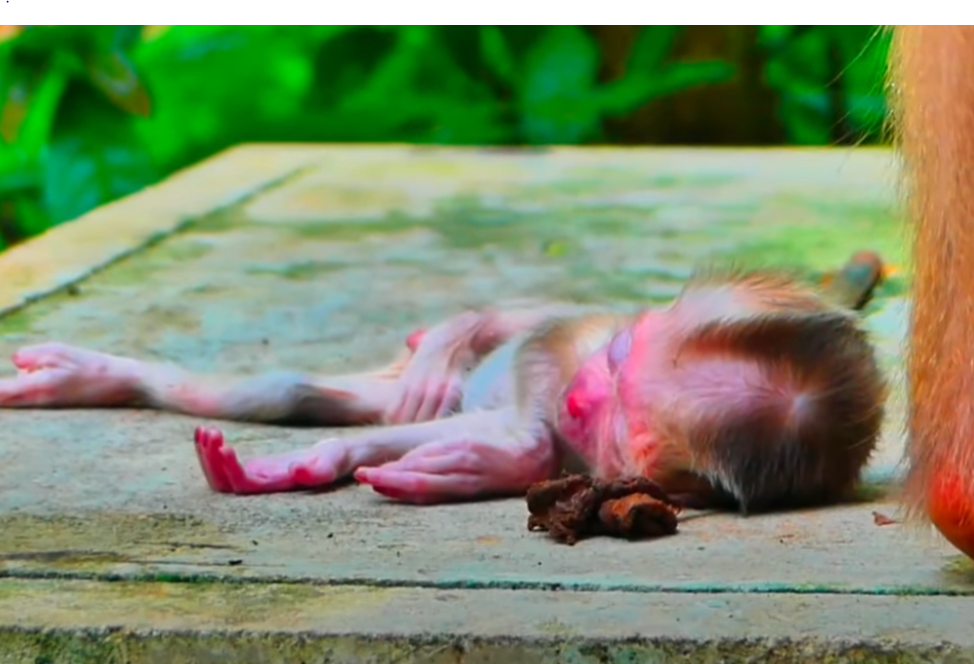

The quiet morning light filtered through the ancient trees of Angkor Wat, painting the forest floor in soft, golden hues. It was supposed to be a day of new life—of a beginning. But fate, cruel as it sometimes is, had written a different story.
I remember hearing a quiet rustle, a sound that signaled something sacred: birth.
A young monkey mother, barely out of adolescence herself, crouched under a low bush. Her eyes were wide, wild with instinct and fear. Her tiny body shook from the pain, but she pushed forward. Beside her, the troop remained distant—watching, but not interfering.
Then, with a final cry, the newborn emerged—pink, wet, fragile… and heartbreakingly still.
He was here. But he was quiet. Too quiet.
She looked down at her baby, nudging him gently with trembling fingers. Her face was blank for a moment, perhaps from exhaustion or shock. But slowly, realization dawned. Her baby wasn’t crying. Wasn’t moving.
My chest tightened as I saw her try again and again—licking his tiny face, adjusting his limbs, even softly lifting his lifeless body onto her chest. Still… nothing.
It was the kind of pain that makes the forest go silent. Even the birds seemed to pause.
I don’t know what took him. Maybe his tiny lungs never filled. Maybe his heart wasn’t strong enough. Or maybe the trauma of a too-early birth in a too-harsh world was just too much.
But in those quiet minutes, the forest bore witness to something unbearably tender.
She refused to let him go.
She sat for hours, cradling him as if warmth could bring him back. She rocked slowly. She groomed his tiny head, cleaned his unmoving hands, and whispered to him in soft, motherly chirps.
Others in the troop approached. One female came close and looked, curious. But the young mother let out a sharp warning cry, shielding her baby with all the fierceness of love. It didn’t matter that he was gone—she was still his mother.
And maybe in that heartbreaking refusal to say goodbye, she believed, even for a moment, that love alone could save him.
I watched, helpless, from a respectful distance. Tears welled up in my eyes. I’ve seen wild births before. I’ve witnessed playful siblings, joyful mothers, even the painful moments of separation when a juvenile must leave. But nothing prepared me for this kind of grief.
The baby’s fur began to dry, but his skin was still pale and motionless. He never nursed. Never opened his eyes. Never reached out for his mother’s chest.
And yet, she held him like he was the most precious treasure in the world.
Even as the troop began to move on, she stayed behind.
Eventually, as the sun crept higher, she gently laid him on the ground beside her. She rested her head next to his, as if whispering one final goodbye.
It was a small life. A quiet, fragile soul who touched no one but his mother. But his story—the tragedy of being born only to slip away in silence—deserves to be remembered.
This is why we tell these stories.
Not for shock. Not for tears.
But because even the smallest heart deserves to be seen.
In the forest of Angkor Wat, life and death dance close. But even in grief, there is beauty. And in love, there is always hope.